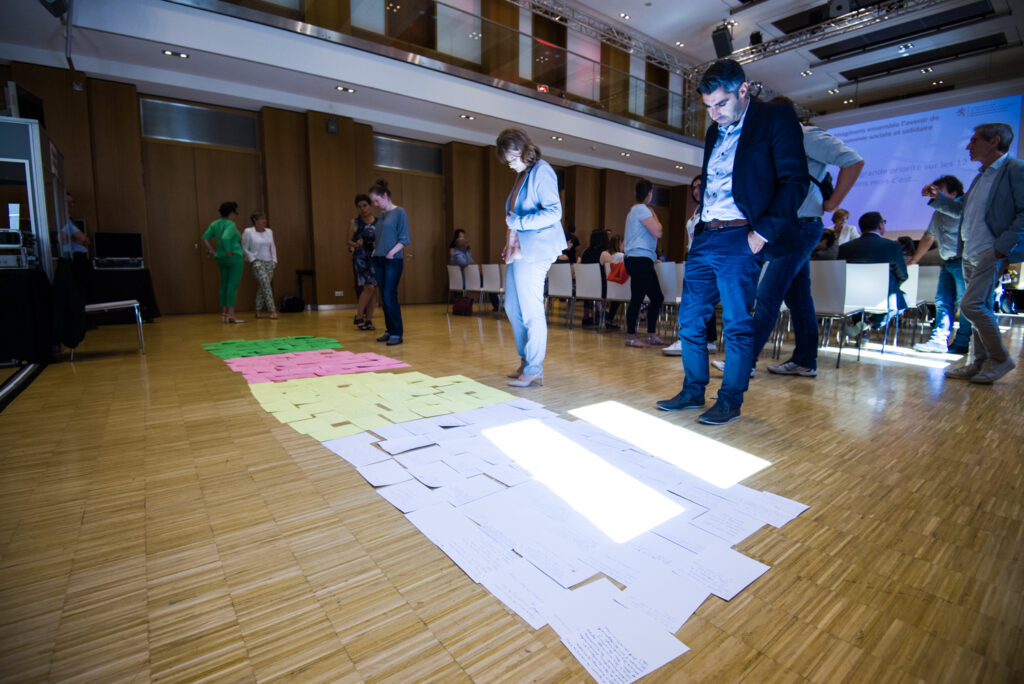A Clear Vision: Valuing the Actors of the Social and Solidarity Economy
Emerging from the financial crisis of 2008, the member states of the EUROPEAN UNION observed that a particular category of economic actors had managed, despite all difficulties, to maintain their activities and thus employment throughout the crisis, unlike conventional actors.
It turned out that these actors shared a vocation to help and support people in vulnerable situations. The concept of the ‘social and solidarity economy’ then became a political reality.
By identifying the new sector, the European Commission highlighted the interest of strengthening this sector at the EU level to mitigate the effects of future economic crises.
Notably, Luxembourg chose to take the initiative on this issue by establishing, as early as 2009, a Ministry of Solidarity Economy, with Romain Schneider as Deputy Minister, supported by Ms. Paulette Lenert.
In July 2013, under the impetus of Minister Nicolas Schmit and thanks to the combined efforts of the social and solidarity economy actors at the time, the Luxembourg Union of Social and Solidarity Economy was created.
The most decisive moment in the rapid development of the social and solidarity economy sector was the passing of the law on societal impact companies on December 12, 2022. This legislation not only created a model of society that was previously unprecedented and unique in its kind but, more interestingly, legally defined the boundaries of the impact economy.
